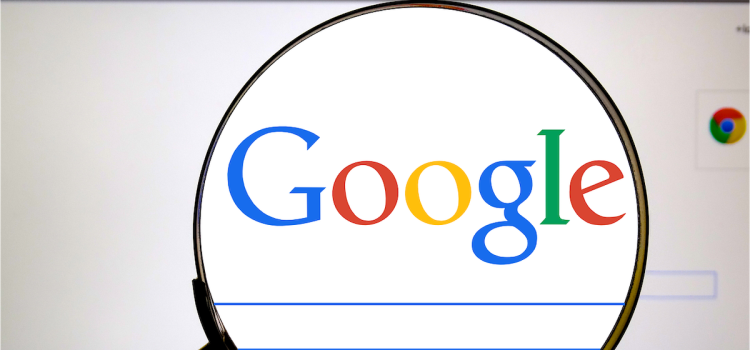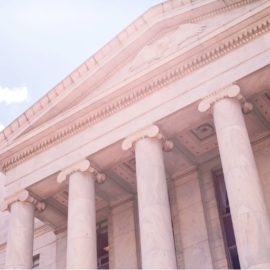
This is a free excerpt from one of Shortform’s Articles. We give you all the important information you need to know about current events and more.
Don't miss out on the whole story. Sign up for a free trial here .
What happens when a tech giant violates antitrust laws? How might the Google antitrust ruling reshape the future of online search and digital competition?
The landmark ruling against Google’s search business monopoly marks a pivotal moment in tech industry regulation. The decision challenges Google’s exclusive agreements and default search deals, potentially opening doors for competitors while reshaping how millions access information online.
Keep reading to discover how this historic ruling could transform the tech landscape, impact digital advertising, and set new precedents for regulating big tech companies.
The Google Antitrust Ruling
On August 5, 2024, a federal judge ruled that Google violated antitrust laws by maintaining an illegal monopoly over its search business through exclusive agreements and default search deals. The Google antitrust ruling could force the tech giant to change its business practices, potentially reshaping the tech industry and opening up opportunities for competitors. This case could also lead to future antitrust actions against other tech giants and increased regulatory scrutiny of the entire sector.
We’ll explore what led to the landmark antitrust ruling against Google, how this decision might impact Google’s business practices and the broader tech industry, and what the potential long-term consequences for Google and other tech giants are.
Context
US District Judge Amit Mehta’s ruling deals a significant blow to Google, potentially affecting how millions of Americans access information online and challenging the tech giant’s long-standing market dominance.
The decision exposes Google’s anticompetitive tactics, particularly its substantial investments in exclusive agreements to secure default search engine status on smartphones and web browsers. These practices effectively marginalized competitors such as Microsoft’s Bing and DuckDuckGo.
Initiated by the US Department of Justice in 2020 and supported by 38 state attorneys general, the case accused Google of illegally manipulating its business dealings to maintain search engine supremacy. The lawsuit culminated in a 10-week trial in the autumn of 2023, with closing arguments concluding in May 2024.
(Shortform note: In his book The Four, Scott Galloway asserts that Google and other big tech monopolies try to eliminate competition in three ways: by purchasing competitors; by forcing competitors out of business; and by engaging in underhanded tactics such as breaking promises, borrowing, and stealing. Galloway writes that these tech monopolies are so massive and have so much capital that they can simply acquire any competitor that poses a threat to them, at prices smaller companies could never afford. They also can afford to lose money in the process of forcing their competitors out of business, and they use their money and power to prevent competitors from entering the market in the first place by constructing infrastructure so massive that smaller companies can’t compete [e.g., Google’s server farms].)
The DOJ’s Argument
The DOJ and Google presented starkly different interpretations of the company’s search engine dominance and its impact on competition in the digital marketplace.
Central to the DOJ’s case was the claim that Google’s search engine handled nearly 90% of all web searches, demonstrating the company’s monopoly power. Prosecutors argued that Google blocked rivals with billion-dollar agreements, making it the default search engine on devices and browsers. These deals solidified Google’s market power, stifled innovation, limited consumer choice, and made it nearly impossible for competitors to gain market share, violating antitrust laws.
(Shortform note: In Zero to One, Peter Thiel writes that a monopoly is the opposite of perfect competition. While competing companies must sell their product at the market price, a monopoly owns the market and sets the price. However, monopolies aren’t all the same. Market domination can be achieved in different ways, including bullying, acting illegally, government sanction, or innovation. In Thiel’s book, monopoly refers to a company that’s so good at doing something that no other company can duplicate it. For example, no other company has competed with Google in search since the 2000s, when it outdistanced Microsoft and Yahoo.)
Google contended its default search agreements, including the $26.3 billion it spent in 2021 to be the default provider on mobile and desktop browsers, were lawful business strategies. The company asserted that users could easily switch search engines if they wanted, but instead chose Google for its superior quality.
Google further argued that the search market included various competitors such as Amazon for shopping and ESPN for sports. It also maintained that its market position resulted from product quality and innovation, warning that penalizing its success could set a dangerous precedent.
The Judge’s Decision
Judge Mehta ruled that Google violated Section 2 of the Sherman Act by employing unfair strategies to maintain its control over online search. This includes Google spending billions annually on deals with Apple and Samsung to keep its search engine as the default option on their products.
Mehta determined that Google was “the only real choice” for default search, obtained through unfair means, and that the company’s monopoly power led to inflated prices in search advertising.
(Shortform note: In The Four, Galloway equates Google to a modern god. People entrust Google with questions that they’ve never asked anyone else before: Approximately one out of every six search requests are completely novel questions. In addition, the fact that Google provides organic search results [in other words, you can’t pay to appear higher up on the list] increases user trust in the company. Users see Google as a benevolent, omnipresent part of their everyday lives.)
Implications of the Decision
Judge Mehta’s decision could have far-reaching consequences for Google, the tech industry, and the broader business landscape:
- Business practice changes. Google may be forced to modify its exclusive agreements for default search engine status on various devices, potentially creating opportunities for competitors in the search market.
- Advertising impacts. The court’s finding that Google’s monopoly led to inflated ad prices may require the company to adjust its search advertising practices. This could affect ad pricing and placement, altering the landscape for advertisers and their marketing strategies.
- Market competition. These changes could foster increased competition in the search engine market, possibly leading to a wider range of options for consumers.
- Regulatory scrutiny. The ruling may intensify oversight of Google and other tech giants’ business practices, potentially leading to stricter regulations in the technology sector, especially regarding market dominance.
- Legal precedents. This decision could serve as a benchmark for future antitrust cases against other tech companies such as Apple, Amazon, and Meta, potentially sparking more litigation to limit dominant tech firms’ power.
- Economic ripples. The ruling could lead businesses across industries to reconsider their contract strategies to avoid antitrust violations.
| The Tradeoffs of Antitrust Laws In his book Basic Economics, Stanford economist Thomas Sowell contends that actions that force companies to facilitate their competitors sometimes seem more like protecting competitors than fostering free competition. Microsoft, after bundling Internet Explorer with Windows, was forced to open access to Windows as a result of antitrust lawsuits, which seems like a disruption of free competition. Sowell argues that the tradeoffs of antitrust laws need to be carefully examined instead of applying a blunt hammer. If antitrust laws become too draconian and companies fear becoming too large, they could limit the scope of their expansion, thus limiting the consumer welfare they can improve. They might also look offshore and invest internationally. Further, laws to restrict large businesses may limit the efficiency that would otherwise arise with free competition. |
What’s Next
Google’s appeal of the ruling could extend the legal battle to 2026 or beyond, potentially reaching the Supreme Court. Meanwhile, the court will begin determining remedies for Google’s antitrust violations in September. Although a company breakup is unlikely, possible actions include:
- Restructuring multibillion-dollar deals with companies such as Apple and Mozilla that make Google the default search engine on devices.
- Sharing data or search algorithm details with competitors.
- Actively informing users about alternative search engines.
This case is part of a larger antitrust push against tech giants. The ruling could influence pending litigation against Apple, Amazon, Meta, and Live Nation (Ticketmaster’s parent company). Additionally, a separate DOJ case targets Google’s ad technology practices.

Want to fast-track your learning? With Shortform, you’ll gain insights you won't find anywhere else .
Here's what you’ll get when you sign up for Shortform :
- Complicated ideas explained in simple and concise ways
- Smart analysis that connects what you’re reading to other key concepts
- Writing with zero fluff because we know how important your time is






